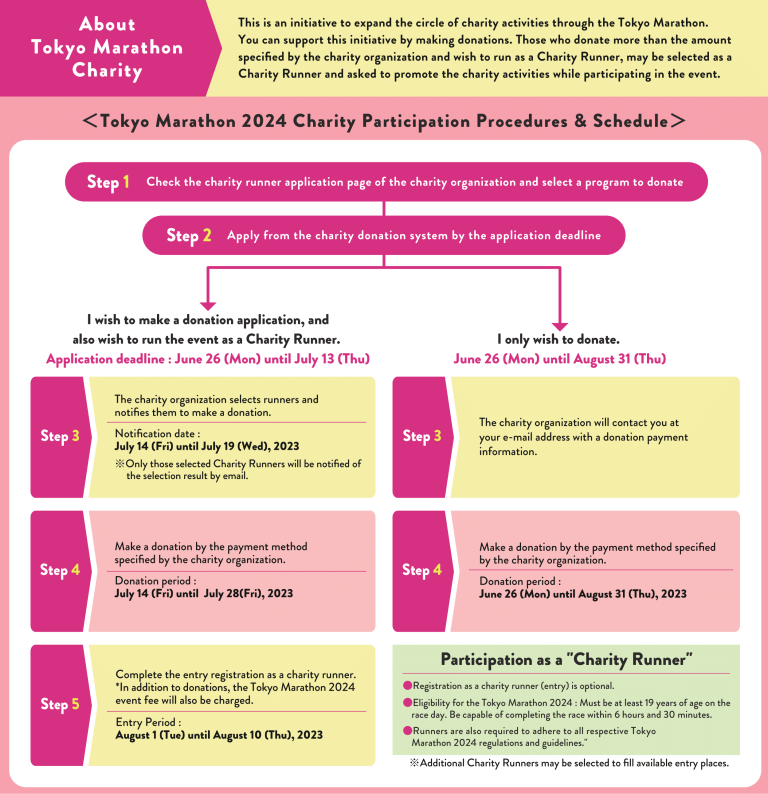Why Do You Have to Pay to Run a Race?
Running a race costs money to cover event expenses and provide a quality experience for participants. Race organizers have to pay for permits, course setup, timing equipment, medals, t-shirts, and other amenities that make the race enjoyable.
Running a race can be a rewarding experience, but why do you have to pay for it? The answer is simple: organizing a race costs money. From securing permits to setting up the course, providing timing equipment, medals, and t-shirts, race organizers have to cover a wide range of expenses to ensure a quality event for participants.
Even small races in local neighborhoods require significant planning and resources to execute. Without funding from race fees, organizers would be unable to provide these amenities and the overall experience would suffer. So, while it may be frustrating to pay to participate, remember that your contributions help ensure a well-organized and memorable event.

Credit: slate.com
The Cost Of Hosting A Race
Are you wondering why you have to pay registration fees to participate in a race? Running a race involves a lot more than just putting on your running shoes and racing to the finish line. Organizing a race is a complex process that requires significant planning, coordination, and expenses to ensure a safe and enjoyable event for all participants.
Organizers must obtain permits from local government agencies to ensure the race location is suitable, safe, and available for use. Permit fees vary depending on the location and type of race. For instance, a race that involves road closures or requires a significant amount of resources from the local government will likely incur higher permit fees.
Race organizers must also purchase insurance to cover the event. Insurance policies can cover a range of liabilities, including medical expenses, property damage, and injury claims. Insurance costs vary depending on the level of coverage needed and the size of the event. The larger the race, the higher the insurance costs will be.
Races often require the rental of facilities such as public parks, recreation centers, or even stadiums. These facilities come with a price tag that can be significant depending on the amenities and services required. For example, rental fees for an indoor facility with locker rooms and showers will be higher than an outdoor park without such amenities.
As you can see, hosting a race involves many expenses, which is why registration fees are necessary to cover these costs. Keep in mind that the fees also help support future events, as organizers use some of the proceeds to fund future races, and local charities may benefit as well.
Race Organization Expenses
Racing events have become more than just a hobby for many individuals these days as it promotes physical fitness and supports various causes. However, it’s not entirely free to participate in a race as it’s a costly undertaking for organizations to host such events. These costs can include expenses for race organization, marketing and promotion, timing and results, medical services, and more. Let’s dive into these race organization expenses and find out why you have to pay to run a race.
Marketing And Promotion
Race organizers have to make sure that people know about their event. They spend a significant amount of money on advertising, promotions, and other activities to spread the word. They hire marketing professionals, create posters and flyers, print T-shirts, and other merchandise with the race logo. The costs for marketing and promotion activities are covered by the registration fees paid by participants.
Timing And Results
The timing and results of a race are essential for both runners and organizers. The cost of timing and results services is a significant expense for event organizers. The cost of timing is dependent on the technology used for the event and must be accurate. Furthermore, the organizers need to arrange for secure, web-based access that allows runners to view their timing and results after the race. This cost is also included in the registration fee that participants pay.
Medical Services
Medical services are another essential factor to consider for race organizers as the safety of the participants is of utmost importance. They need to arrange for an ambulance on the site, first aid kits, and paramedics in case of any emergency. They also need to consult with medical professionals to ensure that the course is properly designed concerning the needs of the runners. These costs are also included in the registration fee paid by the participants.
Race Swag And Amenities
Running a race is an experience that goes beyond crossing the finish line. It’s about pushing yourself to your limits, competing against others and celebrating your success. Race organizers work hard to provide participants with an unforgettable experience, but this comes at a cost. In this article, we explore the reasons why you have to pay to run a race, focusing on the swag and amenities that are offered to participants.
T-shirts And Medals
One of the biggest draws of any race is the promise of a t-shirt and medal upon completion. These serve as a badge of honor and a tangible reminder of your accomplishment. Race organizers have to pay for the production and design of these items, as well as factoring in the cost of shipping and handling. While some races may offer cheaper registration fees without t-shirts or finishers’ medals, those items are important incentives and are worth the additional cost.
Refreshments And Goodie Bags
Another aspect of running a race is the refreshments provided during and after the event. Water, energy drinks, and snacks are essential for keeping runners fueled and hydrated. Goodie bags filled with items such as samples of energy gels, protein bars, and other products aimed at enhancing athletic performance are also a popular perk for runners. However, providing these items comes at a cost to race organizers, and these costs are reflected in the registration fee.
| In summary, | race swag and amenities are a big part of the reason why you have to pay to run a race. Running events offer t-shirts, finishers’ medals, food, and drinks to make the experience more memorable and enjoyable for participants. These items come at a cost to organizers, who have to pay for production, shipping, handling, and other overhead expenses. While the fees for some races can seem steep, remember that you’re paying for much more than just the act of running. You’re paying for an unforgettable experience. |
|---|

Credit: finishlinept.com
Charitable Causes And Donations
Charitable Causes and Donations make up a huge part of the reason why you have to pay to run a race. Races often partner with charities and non-profit organizations as a way to give back to the community. It’s not uncommon for a portion of the race’s entry fee to go directly to the charity or non-profit organization that is associated with the race. Not only does it provide support to those in need, it also can make you feel good about contributing to a cause you believe in.
Giving Back To The Community
When you register for a race, you’re not just paying for the event itself. You’re also contributing to a greater cause in the community. Charities and non-profit organizations often rely on events like races as a way to raise funds for their cause. For example, a 5k race may partner with a local food bank. By registering for the race, you are also helping the food bank provide meals to those in need. It’s a way to feel good about doing something you already love – running – while also making a positive impact in your community.
Sponsorship And Fundraising
Races also usually have sponsors who help support the event. These sponsors can range from local businesses to large corporations. In addition to providing financial support, sponsors may also donate products or services to help make the race successful. For example, a local sports store may donate gift cards to the winners of the race.
Additionally, many races have fundraising opportunities, where participants can solicit donations from friends and family members to support their race. This can help raise even more money for the charity or non-profit organization associated with the race.
Conclusion
By participating in races that partner with charities and non-profit organizations, you can feel good about contributing to a greater cause and making a positive impact in your community. While the entry fee may seem steep, it’s important to remember that it’s going towards something much greater than just the race itself.
The Value Of Participating
Participating in races can offer numerous benefits like meeting new people, staying healthy and active, and supporting a good cause. Paying to participate helps cover the expenses of organizing the race, including securing permits, providing aid stations, and offering finisher medals and shirts.
Are you wondering why you have to pay to run a race? Well, the truth is, hosting a race is not a cheap endeavor. There are permits to be obtained, supplies to be purchased, volunteers to be recruited, and various other costs to be covered. So, paying to participate in a race is not just about getting a t-shirt and a medal at the finish line, it’s about supporting the running community and achieving personal goals.Supporting The Running Community
When you pay to participate in a race, you are supporting the running community. A portion of the registration fees goes towards charities and organizations that promote running and fitness. Additionally, paying to participate in a race helps to ensure that the event is well-organized and safe. Race directors use the funds to hire medical personnel, security, and other personnel to make sure that everything goes smoothly. Running can be a solitary activity, but by participating in a race, you become a part of a larger community of runners who share your passion.Achieving Personal Goals
Paying to participate in a race is also about achieving personal goals. Whether you are a seasoned runner or a beginner, participating in a race can be a great way to challenge yourself. The registration fee can be seen as an investment in yourself and your fitness goals. By participating in a race, you have a firm deadline to work towards, which can help to keep you motivated. Additionally, most races offer different distances, so you can choose a race that is suitable for your ability level. Crossing the finish line can be a great feeling of accomplishment, and the registration fee is a small price to pay for the sense of achievement that comes with completing a race. In conclusion, while paying to participate in a race may seem like an unnecessary expense, it is actually an investment in yourself and in the running community. By supporting racing events with registration fees, you are helping to ensure that these events continue to exist and thrive. Additionally, the value of crossing the finish line and achieving personal goals cannot be overstated. So, the next time you hesitate to pay a registration fee, remember that it’s not just about the t-shirt and the medal, but about supporting the community and achieving your own goals.
Credit: www.runnersworld.com
Frequently Asked Questions Of Why Do You Have To Pay To Run A Race?
What Is It Called When You Run A Race Without Paying?
Running a race without paying is called “bandit running. “
How Much Does It Cost To Put On A Race?
The cost of putting on a race varies greatly depending on the size and logistics of the event. Factors that can affect the cost include permits, venue rental, staff, equipment, and marketing. On average, a small local race can cost a few thousand dollars, while a larger event can cost upwards of hundreds of thousands of dollars.
Can You Run A Race Without Signing Up?
No, you cannot run a race without signing up. Event organizers need to ensure safety and security, assign bib numbers, provide medical assistance, and manage logistics. Unauthorized runners can pose a risk to themselves and others. Sign up for the race to avoid any legal issues and to enjoy the benefits that come with being a registered participant.
Conclusion
It’s clear that paying to run a race might seem disappointing, but it’s essential for event organizers to put on a successful event. From venue costs to race supplies and amenities, there’s a lot that goes into the behind-the-scenes work of a race.
By paying to participate, runners can trust that they’re contributing to a safe and enjoyable race experience. And, let’s face it, the sense of accomplishment and fun of crossing that finish line is worth the price of admission. So, lace up your shoes, register for that next race, and appreciate all the work that goes into making it happen!






